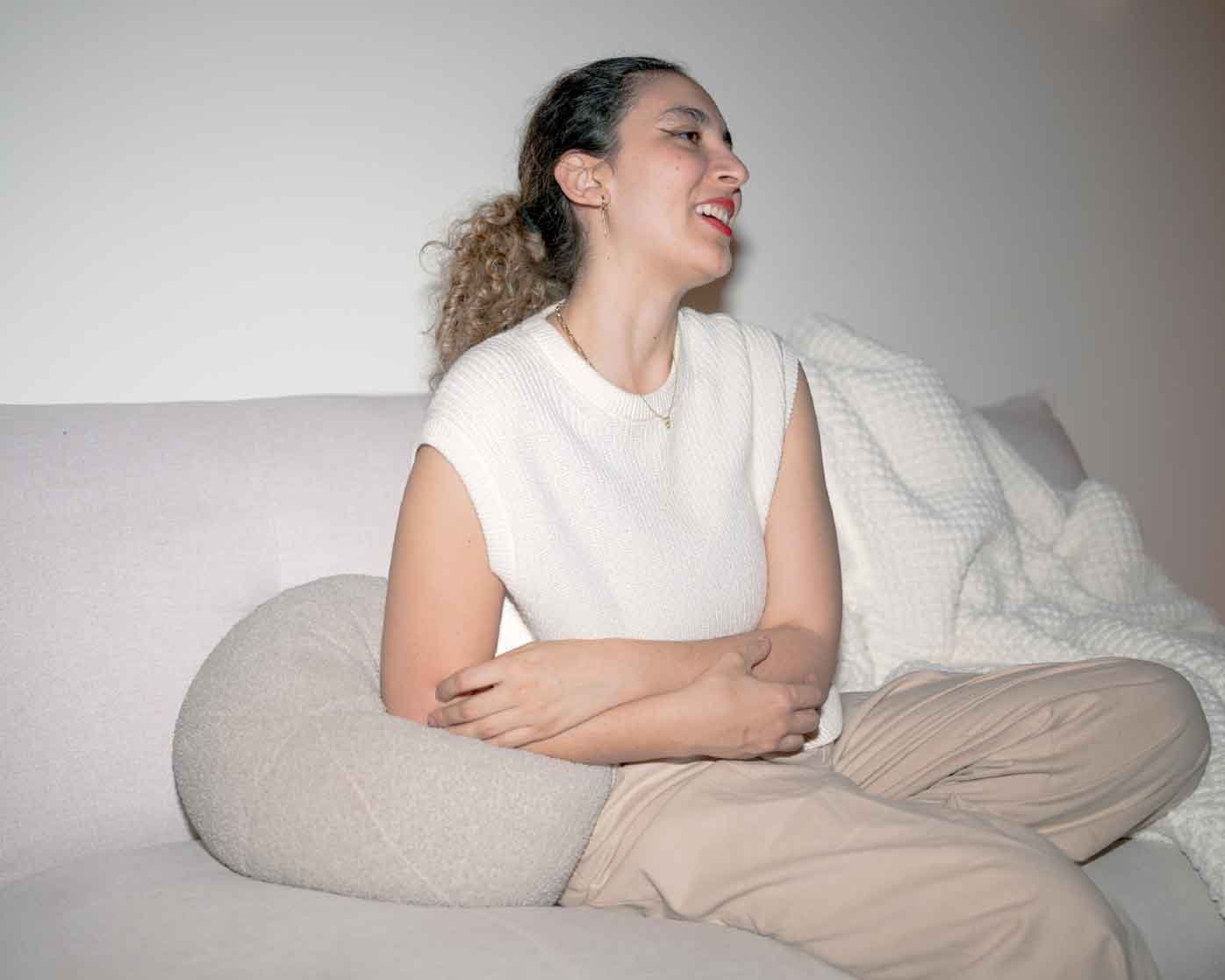What Do You Want For Dinner?
2024 -
What Do You Want For Dinner? is a series exploring the intimacies of queer love in the complexities of all its contexts. To be queer is not only to be attracted to people of the same gender or similar bodies, it is not only to be trans or variant from cisgender and heterosexual identities. To be queer is to love expansively, and with great depth. To be queer is to love in nuance. It is to eat dinner together when you are not hungry, to laugh when you cannot find heightened pitch, to share bodies but not hearts, to merge souls but not bodies. A queer love is a love that knows perseverance. In times of struggle, conflict gives way to support and in places of mismatched interest, friendship blossoms.
This series is a visual documentation of this through femme relationships, or through femme identifying people and people socialized as women. The experience of being socialized as a woman or assigned to the destination of womanhood at birth and discovering a compound queer identity is a painfully delicate and deeply complex experience. The queer femme and assigned female perspective must, by nature of its direct opposition to misogynistic predestiny, reckon with concepts of gender roles. When those in society expected to be women or to behave as such challenge preconceived roles and patterns of behavior, we are villainized instantly. In its simplest forms, this phenomena can be viewed in a similar function to an employee that has never been noted for their accolades or tardiness suddenly making a simple miscalculation at the expense of the company. There are predetermined systems of punishment and standard procedure for performance correction. If you do not adhere or if these procedures fail to work, you are no longer of value to this company.
Cisgendered and heterosexual women have done an incredible job of minimizing this experience for themselves, success varying based on contributing non-queer identities and locality. However, queer femmes and queer people socialized as women living openly as such are in constantly perceivable defiance of our predestinies. A cishet woman can do most things she chooses, but a queer femme’s ability to openly date, marry, conceive, work, study, travel, and dress are under constant scrutiny in a way which cishet women of a century ago could relate to, but those of today know at a much smaller scale. Employability, general safety, and maintaining connection to the family which raised us are all aspects of our lives which are challenged by living openly. These are risks I take everyday. These are risks my lovers take. These are risks my friends take. These are risks my mothers take.
“What Do You Want for Dinner” is the first thing my father said when I was riding a passenger at 15, telling him I liked girls. “What do you want for dinner?” is what my friend asked me after I cried upon learning my high school crush, who was in the closet, told everyone I’d acted inappropriately towards her so nobody would question her identity. “What do you want for dinner?” is what I asked my last partner after having the opportunity to hold her hand in front of half a city and choosing not to, just in case.
These portraits are of the queer femmes and queer people socialized to become women I love the most. They are testimony to the sanctity of our homes and of the bond between us. To document these relationships is to immortalize our community’s refusal to lay down and to redefine feminism as an active form of change that stands not for cishet women alone, but one which stands in opposition to the implementation of patriarchy against all people of all identities in all places. All liberation is collective. All liberation lies in love.
Yours,
FP
This is for my mothers.





